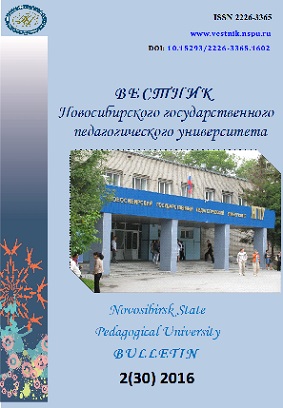Семантико-прагматический потенциал слова вдруг
в русском языке и его перевод на итальянский: контрастивный анализ на основе параллельного русско-итальянского корпуса
Semantic and pragmatic potential of Russian word vdrug and its translations into Italian: contrastive analysis on the material of the parallel Russian-Italian corpus
Author(s): Anna BonolaSubject(s): Philology
Published by: Новосибирский государственный педагогический университет
Keywords: Russian-italian lexical contrastive analysis; Russian particle vdrug; Russian-Italian parallel corpus; translation; Russian lexicography.
Summary/Abstract: The study begins with a short analysis of the way the Russian dictionaries describe the Russian word vdrug. They distinguish between vdrug as an adverb (with temporal and psycho-logical meaning) and vdrug as a modal particle used to describe possible events. Then, on the basis of the Russian National Corpus (НКРЯ, NCRL) and Russian lexicography, it provides a diachronic investigation of the way the use of vdrug has changed since the 16th century. The author also shows how Russian speakers express their metalinguistic awareness of the meaning of this word in literary and poetical texts of the 20th century. Finally, by exploring the parallel Italian-Russian corpus in NKRJa, it analyzes how the different contemporary meanings of vdrug have been translated into Italian and how some Italian markers have been translated by vdrug. Concluding her investigation the author identifies the semantic elements of the Russian word vdrug that correspond to various markers in Italian in order to avoid semantic reduction or distortions in translation practice.
Journal: Вестник Новосибирского государственного педагогического университета
- Issue Year: 6/2016
- Issue No: 2
- Page Range: 24-37
- Page Count: 14
- Language: Russian

